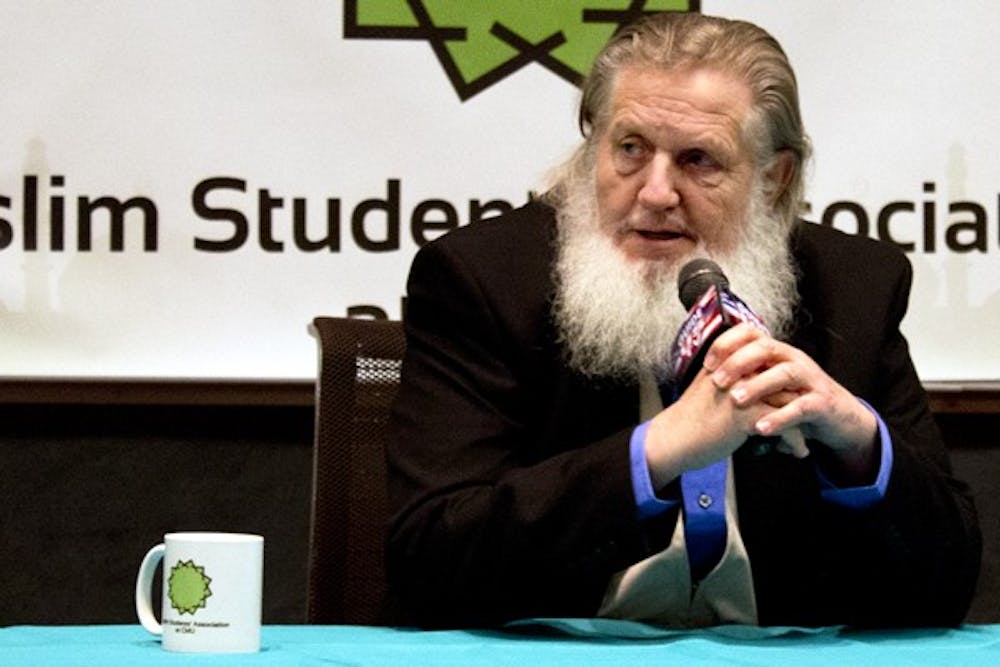Sheikh gives break down of Islam at 'Purpose of Life' forum Wednesday
With the revitalization of the Muslim Students Association last semester, the organization needed a way to mount its comback, and American Muslim preacher Sheikh Yusuf Estes did just that.
Estes, who converted from Christianity in the early '90s before going on to become the Muslim delegate to the United Nations World Peace Conference, explored the themes of worship, predestination and the meaning of being Muslim on Wednesday in Central Michigan University's French Auditorium.
Caleb Ross, a Harbor Springs senior and secretary for the MSA, was the emcee for the evening. Ross said members of the MSA contacted Estes in November to speak about an issue relevant to student life on campus.
After changes to the program, as well as some technical difficulties, the program began and Estes broke down the main foundations of Islam for the audience and for others around the world by simultaneously broadcasting his talk via the GuideUs TV channel.
Estes’ words were especially relevant to one group of students who came to hear him speak.
Natalie Marzonie Parra, a professor in the English Language Institute, made the program into part of her curriculum for her ELI 062 class of students who are working on improving their English.
The class attended the program as a group, practiced their ability to listen to English and completed a supplementary assignment related to the talk.
Many of Marzonie Parra's students are Muslim, so the program was a good way to blend a support of their culture with practice of the English language.
“They’re going to practice their listening by taking notes and then they’re going to write a reflection about their thoughts about the speaker’s topic,” Marzonie Parra said. “It’s hard for international students to get involved sometimes.”
In order to tackle the question of the purpose of life, Estes referred several times to the Quran. He also utilized theories of psychology, such as human motivation, to shed light on the decision to worship.
By breaking down words and exploring their Arabic definitions and translations into English, he explained that, at its very base, the Islam religion persists that people were created to worship God.
“All of us, human beings, have a relationship with God whether we know it or not,” Estes said. “Our purpose is to worship God on his terms.”




